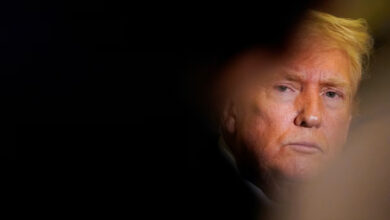Tehran – No offer from world powers could persuade Iran to stop enriching uranium, Iranian President Mahmoud Ahmadinejad said Tuesday.
At a news conference held a day after the United Nations' atomic watchdog said there was new evidence about possible military dimensions to Iran's nuclear work, Ahmadinejad accused IAEA chief Yukiya Amano of following Washington's orders and said his comments had "no legal value."
"With America's orders (the IAEA) has written some things in a report that are against the law and against the agency's regulations. These have no legal value and aside from harming the agency's reputation it will have no other effect," Ahmadinejad told reporters.
Iran has says its nuclear program is entirely peaceful and has called international sanctions aimed at persuading it to halt uranium enrichment illegal.
Amano said Monday the agency had received "further information related to possible past or current undisclosed nuclear-related activities that seem to point to the existence of possible military dimensions to Iran's nuclear program."
Ahmadinejad denies sanctions are hitting Iran's economy and has insisted Tehran will not give up what it considers its sovereign right to enrich uranium, a process that can make fuel for power plants or, if processed much further, provide bomb material.
"We will continue our path," he said, adding that Iran would continue to cooperate with the IAEA "as long as they move based on justice."
Asked whether the world powers that have held talks with Tehran in the past to seek an end to the nuclear impasse could offer any incentive to stop Iran's enrichment, he answered with the one word: "No."
Two rounds of talks between Iran and the five permanent members of the UN Security Council, the United States, Russia, China, Britain and France, plus Germany, in Geneva in December and in Istanbul in January, did not reach any substantive result.
Iran has said its right to enrich uranium must be recognized, something Western diplomats said was an unacceptable pre-condition to substantive talks.




